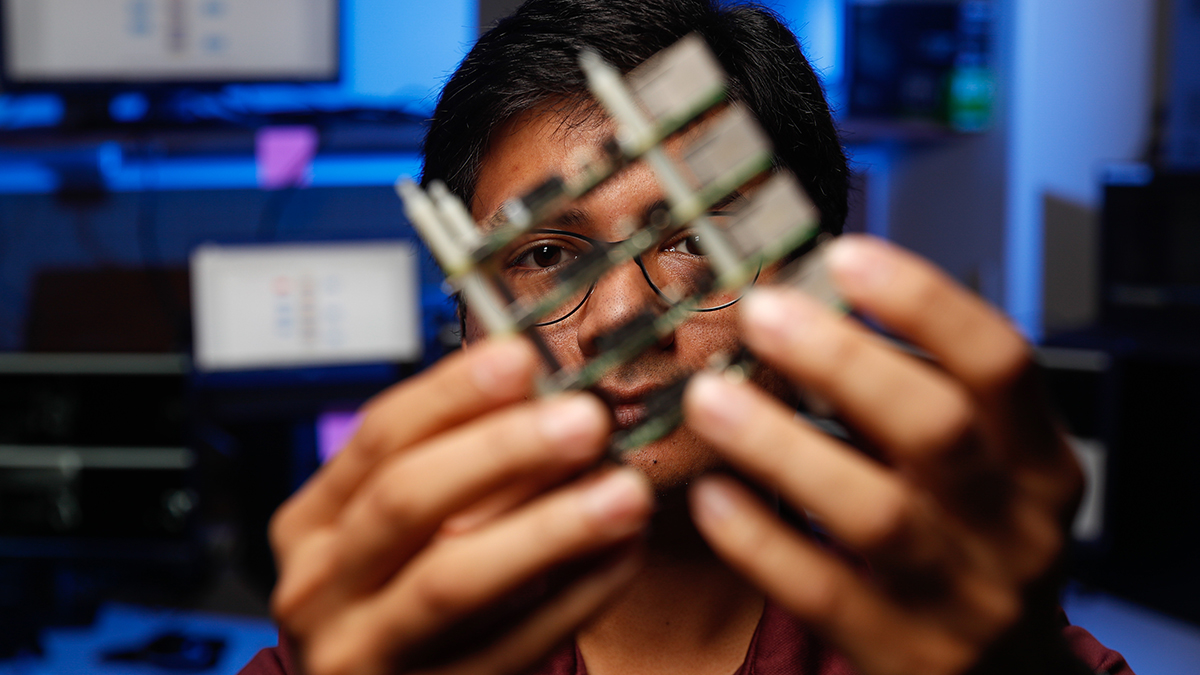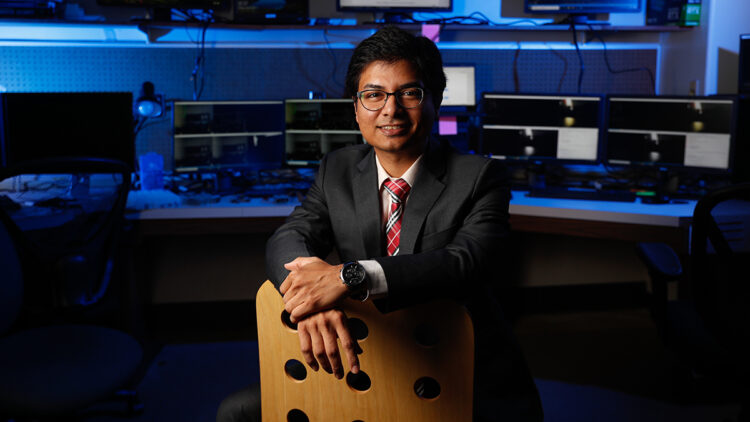How can we make smart homes smarter?
Dr. Razib Iqbal, associate professor of computer science at Missouri State University, strives to answer this question. He studies multimedia and the internet of things, or IoT.
What is IoT? It could be anything connected to the internet — from smart meters and appliances to smart smoke detectors and wearables.
Sensing the ecosystem of connected things
Iqbal’s research could lead to new ways of distinguishing between voices and beings.
“Using ordinary microphones and cameras, we can gather information about users’ states of being,” Iqbal said. “This includes recognizing voice commands and gestures, detecting emotions and differentiating between humans and pets or other objects, among other forms of sensing.”
The sensor system could especially benefit a more vulnerable population of loved ones: the elderly. They may experience memory impairment, which makes remembering device commands for Amazon Alexa and Google Home difficult.
Elderly people also often experience falls, which the smart home system could detect.

Saving resources
Iqbal presents a novel framework for overcoming traditional IoT systems’ limited processing functions. He proposes that the high-processing software, called middleware, step in to help.
Besides saving processing resources like battery power, middleware also saves users money.
“One smart device always leads to more. It would get very expensive if each had to process multimedia content itself,” Iqbal said. “Streaming the content to middleware is a much cheaper option — one that eliminates the need for expensive connecting devices.”


Leave a Reply